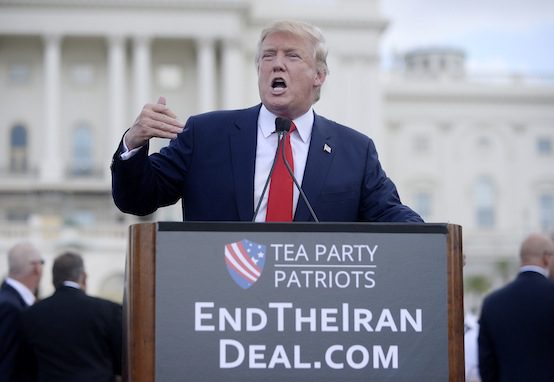Trump’s Unrealistic Iran Policy

Robert Einhorn makes some similar observations to the ones I made in a post last week about the Trump administration’s Iran policy:
In addition, today’s pressures will not be strong enough because U.S. demands go far beyond what any Iranian government would be willing or able to accept. Most Iranians resent the U.S. unilateral withdrawal from a multilateral deal they regard as equitable and working well. They would strongly oppose making major new concessions on core Iranian interests in the face of what they see as U.S. bullying. Iranian hardliners who in 2015 opposed the nuclear deal as giving away too much would fiercely attack any Iranian government that surrendered to U.S. demands.
So the Trump administration is trying to achieve much more than the Obama administration achieved in 2015—but with significantly less leverage. That is not a recipe for success. Unless the administration gets realistic about what is achievable, Iran will sooner or later leave the nuclear deal and start building up its nuclear capabilities.
I agree with all of this. I would just add that the Trump administration has given Iran every reason to believe that any offer of sanctions relief is duplicitous. Having already reneged on the nuclear deal and gone back on the previous commitment to provide sanctions relief, the Trump administration cannot now use sanctions to extract meaningful concessions from a government that has just seen them violate the earlier agreement. Unlike Trump’s past business practices, you cannot betray a negotiating partner and then bully them into coming back to the table to pay a much higher price than they already paid. No matter what you’re offering, you have already proven that you won’t honor the bargain.
The other limitation to any negotiations with Iran is that Iran made its major concessions on the nuclear issue when it implemented the requirements of the JCPOA. Even if Iran were interested in negotiations at some point in the future, they would first have to expand their nuclear program to give them something to bargain with. In short, insisting on new negotiations is a good way to cause the complete collapse of the existing agreement. Of course, the administration isn’t interested in negotiating with Iran in good faith, but rather wants to force its capitulation and the collapse of the regime. That is yet another reason why no self-respecting Iranian leader will want to talk to the U.S. as long as Trump is in office.
Pursuing unrealistic, maximalist goals is one of the recurring themes in this administration’s foreign policy, and it isn’t likely to change anytime soon. It is telling that the so-called “principled realism” of the Trump administration is defined by so many policies divorced from reality. That is a reminder that Trump’s “principled realism” is neither realist nor principled, and it also has nothing to do with advancing American interests.